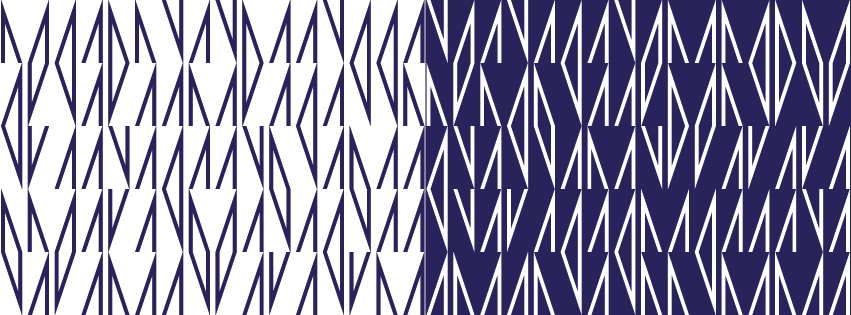
It’s time to complete our series of takes on this year’s Eurovision entries with the final ten. Let’s dive in!

Switzerland – Watergun
The Voice winner Remo Forrer will be Switzerland’s flagbearer in Liverpool with Watergun, a pacifist song in which Forrer reflects on childhood memories pretending to fight wars as part of the usual playing, and realizing later in life just how much more serious the reality of war is than those games.
The main issue with this entry is how similar in sound, if not in themes, it comes to feel to Switzerland’s most recent entries at certain points. And considering Marius Bear hardly got any love from the televote last year in Turin, and semifinals are now televote-only, that isn’t a good omen. Forrer will need to figure out a presentation that adds to the story of the song if he wants to stand the slightest chance of making that cut.

Austria – Who the Hell is Edgar?
There’s more to this one that meets the ear at first. Teya & Salena present what at first looks like a quirky number with a story about being possessed by the ghost of Edgar Allan Poe, but the track also hides a biting satire against the current state of music industry, with the lyrics mentioning in particular how underpaid songwriters are from streaming.
We have no doubt this will be an entry to watch this year. Who the Hell Is Edgar? has the potential to deliver one of the most memorable and over-the-top stage presentations of the contest in Liverpool; the Austrian delegation just needs to be careful to not push the staging too far over the top.

Israel – Unicorn
After missing out on the finals last year for the first time since 2014, Israel is going all in this time around, entrusting its Eurovision fortunes to one of the nation’s biggest stars. Noa Kirel was the first artist confirmed for Eurovision 2023, all the way back in the summer, and she will be bringing the power of the Unicorn to Liverpool with lyrics touching themes of female empowerment.
Musically, Unicorn is possibly one of the least interesting songs in Kirel’s back catalog, and it sounds closer to, say, a Sia reject than to any of her work; not a particularly bad song, but not really remarkable. We’re not completely sold on it, but time will tell if Noa’s drawing power and the stage presentation will be enough to help Israel break its non-qualification streak before it reaches two.

Portugal – Ai coração
Over twenty years after first trying her hand at Festival da Canção when she still was a teenager, Mimicat returned to win it all and secure Portugal’s ticket to Liverpool with Ai coração, a Portuguese-language song about a woman spiralling into madness as she waits for her lover, with which she’ll be hoping to land her country in the grand final for the third consecutive year.
Mimicat presents one of the most unique entries of the year, bringing in a curious mixture of cabaret atmosphere with traditional instrumentation that works surprisingly well on stage. It might not be in the battle for the crown once the Saturday night votes start being tallied, but it certainly should stand out from the crowd enough to find its way past the semis.

Sweden – Tattoo
Eleven years after taking the crown in Baku with one of the most revered performances in modern Eurovision history, Loreen is back for another go. This time she’s presenting Tattoo, a dark dance-pop track with lyrics conveying longing for a departing lover, yet also hope for a future reunion.
It quickly becomes apparent that if this entry is seen as a legitimate challenger, it is purely because of the performer at its front. Take away Loreen’s dedication, stage presence and name recognition, and what you have left is a rather generic track (even if we ignore the plagiarism accusations leveled at it) that would not stand a chance in other hands. The presentation is also a question mark as we write this; apparently, prop weight issues complicate the translation of the intriguing Melodifestivalen performance to the Liverpool stage.

United Kingdom – I Wrote a Song
Sam Ryder’s second place last year felt like a tough act to follow, but the UK isn’t just heading back out of the top without a fight. Mae Muller will be taking the stage on home soil in Liverpool with I Wrote a Song, a pop number about using songwriting to cope with a romantic breakup.
We can officially confirm that the United Kingdom’s recent turnaround is no fluke. Muller brings a fun, energetic, well-crafted entry that could easily sneak into the top half of the board with the right staging.

Greece – What They Say
At just 16 years old, Greece’s Victor Vernicos will be the youngest contestant in Liverpool this year. He will be performing What They Say, a song inspired by a memory of his first serious experience of anxiety at age 13.
We’re surprised by how mature Victor’s voice already sounds, and you can tell this is a delicately, carefully crafted song. But it feels like something’s missing here; maybe he just needs to punch up the presentation once he gets on stage. At the very least, we believe Vernicos has what it takes to clear the first hurdle and make it past the semifinals.

Azerbaijan – Tell Me More
Twin brothers Tural and Turan Bağmanov have gone from street performers to the Eurovision stage. Collectively known as TuralTuranX, the duo will be singing Tell Me More, a throwback track inspired by singer-songwriter pop-rock numbers.
We struggled to connect with this entry because of the distortion and the spoken parts of the beginning taking us out of the song at first. Their style is recognizable, sure, what they are going for is clear; but they are not yet completely able to make that style their own. They might get to the final with the right tweaks and presentation, but their spot is not quite locked in.

Armenia – Future Lover
On the heels of Rosa Linn’s Snap becoming a viral sensation months after coming in twentieth in Turin, it is now Brunette‘s turn as Armenia’s Eurovision contender. She will be competing with Future Lover, a song that, much like its own lyrics state about Brunette’s hopes for the future relationship with her unknown partner, feels “quiet outside, but loud inside”: starting and ending quietly, with a burst of energy in the middle.
We find ourselves on the fence when it comes to this entry, as its structure confuses us more than anything else; there’s no discernible chorus and the “be good, do good, look good” bit doesn’t really pack the necessary punch to qualify as a hook. There was potential to this concept, but we do not feel Brunette fully taps into it.

Georgia – Echo
Finally, The Voice champion Iru was the last to reveal the song with which she will be flying Georgia’s flag. Echo can be described as a power ballad about love, faith and peace.
We’re worried mainly about the lyrics not quite fully conveying the message, but that can be solved with a staging that adds to the song’s story. Iru has on her side an energetic, memorable melody and proven vocals. She could be just what Georgia needs to break out of its slump and reach the Eurovision final for the first time since 2016.
And that was the story so far. Feel free to tell us your thoughts in the comments!

